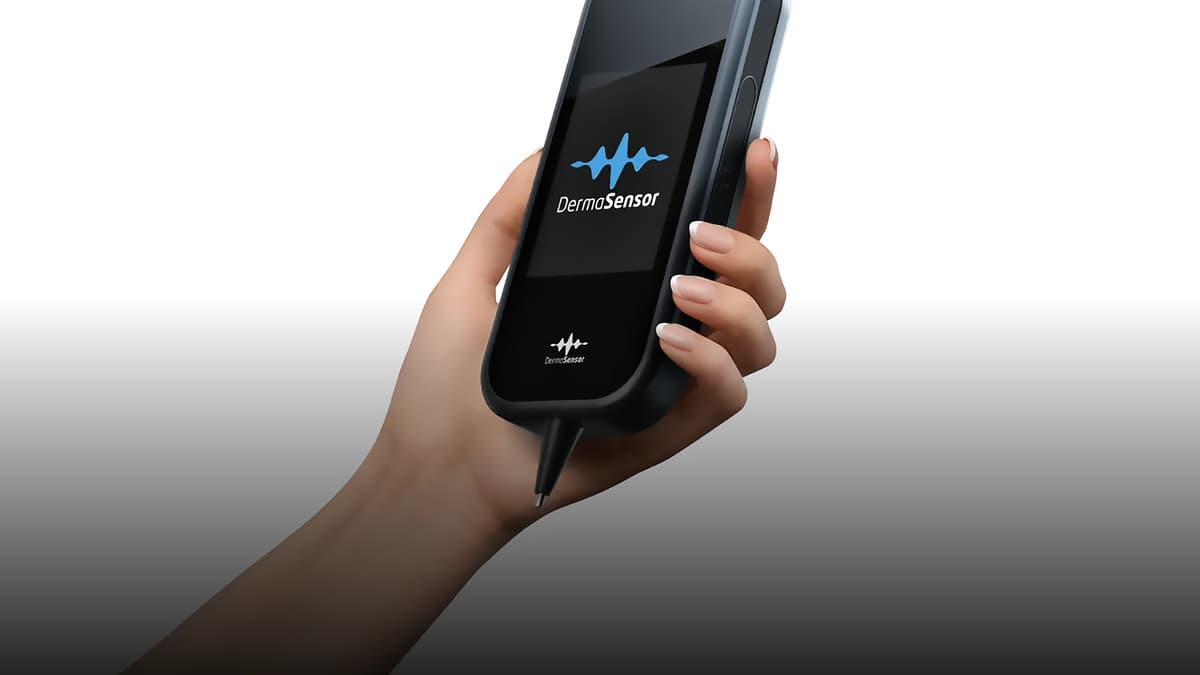The FDA has granted approval for the second AI-powered portable medical device, designed to aid physicians in identifying melanoma, squamous cell carcinoma, and basal cell cancer—three common types of skin cancers. This advancement is expected to expedite access to vital treatment for patients through more precise skin cancer detection.
Recent projections suggest that one in five Americans may develop skin cancer in their lifetime. Among the most prevalent types are melanoma, known for its aggressive nature, squamous cell carcinoma (SCC), and basal cell carcinoma (BCC).
Early detection of skin cancers significantly improves treatment outcomes, emphasizing the importance of prompt intervention. Traditionally, skin lesion identification has relied on visual inspection or magnified physical examinations, influenced by the expertise and judgment of primary care physicians (PCPs). The recent FDA approval of DermaSensor, an AI-powered device capable of swiftly identifying the three common skin cancers, marks a significant advancement in detection technology.
Cody Simmons, the co-founder and CEO of DermaSensor, envisions a promising future for artificial intelligence in healthcare, leveraging technologies like spectroscopy and genomic sequencing to enhance disease detection and management. Addressing a longstanding gap in medical practice, DermaSensor aims to empower PCPs—the primary healthcare providers in the country—with an automated tool for evaluating suspicious skin lesions, filling a critical need in the healthcare landscape.
It is essential to distinguish between “FDA approved” and “FDA cleared” medical devices, categorized based on risk levels and complexity. Class III devices, such as pacemakers, undergo stringent FDA approval processes due to their higher risk profiles. In contrast, Class I or Class II devices, like the Apple Watch’s ECG feature, are cleared by the FDA if they demonstrate substantial equivalence to existing market devices in terms of safety and efficacy.
DermaSensor utilizes elastic scattering spectra (ESS) technology, which analyzes how light scatters when interacting with biological structures, to differentiate between benign and malignant skin lesions based on their cellular composition. By integrating optical data with AI analysis, DermaSensor equips healthcare providers with valuable information for skin lesion assessment.
Clinical trials conducted at 22 locations in the US and Australia, involving 1,005 participants with skin tumors, formed the basis for DermaSensor’s FDA certification. The device demonstrated a high sensitivity in detecting malignancies, surpassing the accuracy of PCPs in identifying potential cancerous lesions.
In a related validation study involving 108 PCPs evaluating 50 skin lesions, the use of DermaSensor significantly reduced the rate of missed skin cancers, enhancing physicians’ confidence in their assessments. This improved accuracy is expected to streamline the referral process between PCPs and dermatologists, facilitating quicker access to necessary treatments for patients with skin cancer.






